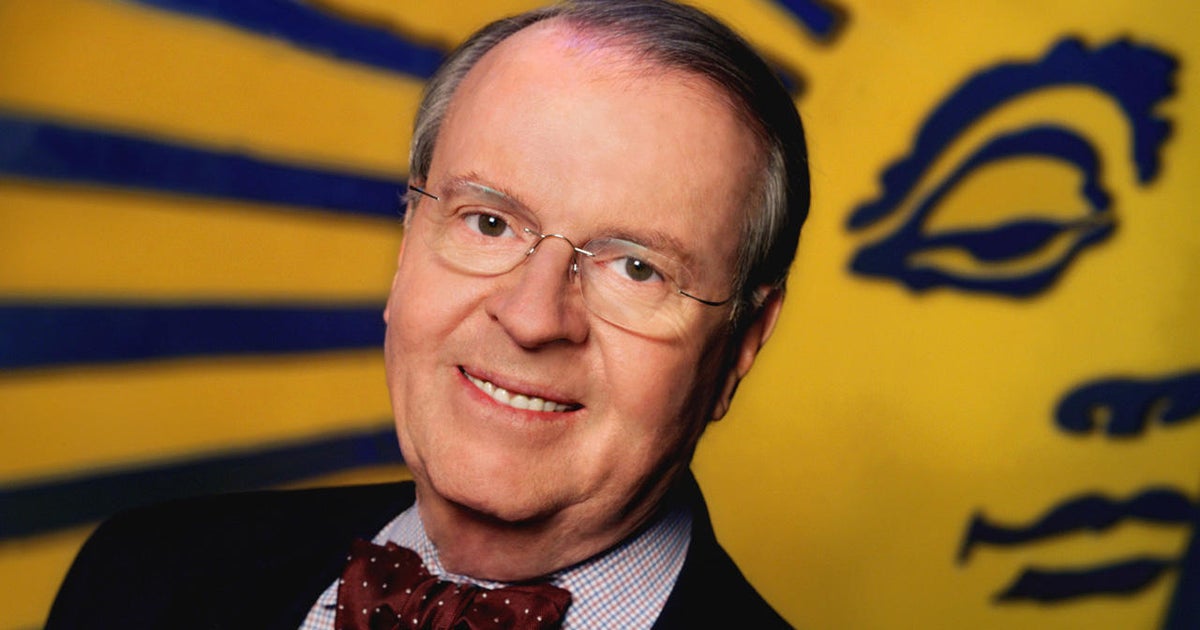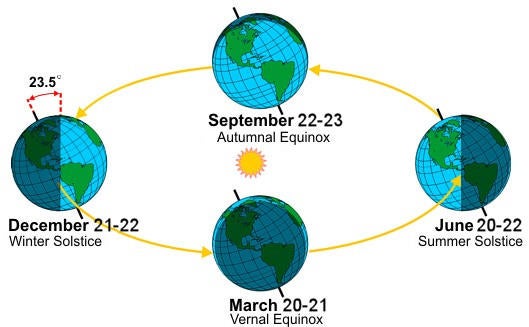CBS News
Charles Osgood, veteran CBS newsman and longtime host of “Sunday Morning,” dies at 91

Award-winning journalist Charles Osgood, who anchored “CBS Sunday Morning” for 22 years and was host of the long-running radio program “The Osgood File,” died Tuesday at home in New Jersey. He was 91.
The cause of death was dementia, his family said.
Osgood, a gifted news writer, poet and author, spent 45 years at CBS News before retiring in September 2016. Osgood began anchoring “CBS Sunday Morning” in 1994. During his run on the show it reached its highest ratings levels in three decades, and three times earned the Daytime Emmy as Outstanding Morning Program.
JOHN FILO, CBS
“For years now people — even friends and family — have been asking me why I keep doing this considering my age,” Osgood said when he retired in 2016 at 84. “It’s just that it’s been such a joy doing it! Who wouldn’t want to be the one who gets to introduce these terrific storytellers and the producers and writers and others who put this wonderful show together.”
Osgood said then it has “been a great run.”
He interviewed such luminaries as chef Julia Child, graffiti artist-turned-gallery star Keith Haring, painter Andrew Wyeth, sculptor Louise Nevelson, and singer-songwriter Sting.
Osgood’s love of poetry and of music were also on display in “Sunday Morning,” whether it was his playful prose, or playing Christmas carols on the piano during the show’s holiday broadcasts.
Often referred to as CBS News’ poet-in-residence, Osgood was called “one of the last great broadcast writers” by Charles Kuralt, whom Osgood succeeded as host of the Sunday morning magazine program in 1994. But he did more than carry on a great American oral tradition; he could also play piano, organ, banjo, violin, and was an accomplished composer and lyricist who could also sing along. He employed his many talents inside and outside CBS, sometimes performing with professional orchestras such as The New York Pops, The Boston Pops and The Mormon Tabernacle Choir.
“To say there’s no one like Charles Osgood is an understatement,” said “Sunday Morning” executive producer Rand Morrison. “He embodied the heart and soul of ‘Sunday Morning.’ His signature bow tie, his poetry … just his presence was special for the audience, and for those of us who worked with him. At the piano, Charlie put our lives to music. Truly, he was one of a kind – in every sense.”
Veteran broadcaster Jane Pauley, who succeeded Osgood as host of “Sunday Morning” in 2016, said, “Watching him at work was a masterclass in communicating. I’ll still think to myself, ‘How would Charlie say it?’, trying to capture the illusive warmth and intelligence of his voice and delivery. I expect I’ll go on trying. He was one of the best broadcast stylists and one of the last. His style was so natural and unaffected it communicated his authenticity. He connected with people. Watching him on TV, or listening on the radio, as I did for years, was to feel like you knew him, and he knew you. He brought a unique sensibility, curiosity and his trademark whimsy to ‘Sunday Morning,’ and it endures.”
“Charles Osgood is one of the legendary journalists who made CBS News what it is today,” said Ingrid Ciprian-Matthews, president of CBS News. “His commitment to the craft, especially to the art of writing, left an indelible impression on the field. He was a mentor and friend to many. His impact will be felt on CBS News for decades to come.”
“I’ll see you on the radio”
During a career that spanned nearly 50 years, Osgood worked on virtually every broadcast within CBS News, including the “CBS Morning News,” the “CBS Evening News with Dan Rather” and the “CBS Sunday Night News.”
CBS
And for almost 46 years, he wrote and hosted “The Osgood File,” written radio commentaries on the day’s news, broadcast up to four times a day, five days a week, that were occasionally rhymed. For each edition, which aired on stations around the country, he signed off with the familiar “I’ll see you on the radio” – a phrase he carried over to his TV duties hosting “CBS Sunday Morning.”
Osgood earned many top broadcasting awards, including the Walter Cronkite Excellence in Journalism Award from Arizona State University, the George Foster Peabody Award, the National Association of Broadcasters Distinguished Service Award, and four Emmy Awards, and earned a fifth lifetime achievement honor in 2017.
He also received a 1999 International Radio and Television Society Foundation (IRTS) Award for significant achievement; and the 2005 Paul White Award, presented by the Radio-Television News Directors Association. He was inducted into the National Association of Broadcasters Hall of Fame in 1990, and the Broadcasting and Cable Hall of Fame in 2000. “The Osgood File” earned its author five coveted Washington Journalism Review “Best in the Business” Awards.
“Short words, short sentences, short paragraphs”
He was born Charles Osgood Wood III on January 8, 1933, in New York City. (He would adopt Charles Osgood as his radio name at his first professional job, because there already was a Charles Woods on the air.) He grew up in Baltimore, Philadelphia and New Jersey, and spent his youth taking piano lessons, delivering newspapers, and beginning a lifelong relationship with radio by listening to greats like Edward R. Murrow and Lowell Thomas report on World War II, and the entertainment shows popular at the time, such as “Jack Armstrong, the All American Boy.”
He was graduated from Fordham University in New York City in 1954, with a B.S. degree in economics. But he said he spent more time at the campus radio station, WFUV, than in classrooms. He became the station’s chief announcer and earned his own show, on which he talked and played piano.
He started as a classical music DJ at WGMS in Washington, D.C. When he learned that the position of band announcer in the U.S. Army would soon open, and being 1A in the draft, Osgood decided to join the Army and its Washington-D.C.-based band. He became its announcer and met band arranger John Cacavas, with whom he collaborated for years afterward, eventually writing the lyrics for “Gallant Men,” which was a Top 40 hit in December 1966.
He left the Army in 1958 and returned to WGMS before being tapped as general manager to help start up the nation’s first pay cable channel, WHCT, in Hartford, Conn. The experiment failed, and in 1963 Osgood took a college friend’s offer for an on-air position at ABC Radio in New York. He spent four years as a general assignment reporter, and contributed to the “Flair Report,” where he began rhyming pieces and reading them on air.
Beginning in 1967, Osgood was an anchor-reporter for WCBS NewsRadio 88 in New York, where he anchored the first morning drive shift when the station became an all-news outlet.
His distinctive style landed him a job at the CBS Network, where he launched one of the longest-running features in radio history: What came to be known as “The Osgood File.”
“Short words, short sentences, short paragraphs,” Osgood said. “There’s nothing that can’t be improved by making it shorter and better.”
And his reports often rhymed, offering piquant commentary on the day’s events. He said some stories were just naturals that he knew right away he could make rhymes of in the rushed 60 to 90 minutes he had each morning to compose them. He said, “Some news is good and some is worse, and some news goes from bad to verse.” One item that especially tickled him was the 1980 U.S. Census form acronym for “Persons of the Opposite Sex Sharing Living Quarters (POSSLQ),” which he pronounced “poss – el – cue.”
You live with me,
and I with you,
and you will be my POSSLQ.
In 1984 he offered this report on the Nut Tree Harvest Festival’s scarecrow decorating contest in Vacaville, Calif.:
When it’s time for Halloween-ing,
there’s one thing you should know,
You should stay away from Nut Tree,
that is, if you are a crow.
For they go to endless trouble there
to get crows off their backs,
And to make crows feel unwelcome,
And to give crows heart attacks.
But not everyone in the audience was a fan. “We actually had a death threat in the newsroom,” Osgood recalled in 2016. “Somebody called up and he said, ‘Tell Osgood that if he does any more of those stupid poems, I’m gonna kill him!'”
Beyond the newsroom
Osgood made his theatrical debut as the narrator of Dr. Seuss’ “Horton Hears a Who,” the animated feature film adaptation of the beloved children’s book. He also wrote A Funny Thing Happened on the Way to the White House (Hyperion, 2008); Nothing Could Be Finer Than a Crisis That Is Minor in the Morning (Holt, Rinehart & Winston, 1979); There’s Nothing I Wouldn’t Do if You Would Be My POSSLQ (Holt, Rinehart & Winston, 1981); Osgood on Speaking: How to Think on Your Feet without Falling on Your Face (William Morrow and Company, 1988); The Osgood Files (G.P. Putnam’s Sons, 1991); See You on the Radio (G.P. Putnam’s Sons, 1999) and Defending Baltimore Against Enemy Attack (Hyperion, 2004). Osgood also edited Funny Letters From Famous People (Broadway Books, 2003) and Kilroy Was Here (Hyperion, 2001).
Osgood is survived by his wife of 50 years, the former Jean Crafton; five children (Kathleen Wood Griffis, Kenneth Winston Wood, Anne-E Wood, Emily J. Wood and Jamie Wood); a sister, Mary Ann; and a brother, Ken. His first marriage to Theresa Audette ended in divorce after 16 years.
In a statement his family said, “Charlie absolutely loved being part of the ‘Sunday Morning’ community. We’ll miss him terribly, but there is comfort in knowing his life was charmed, in large part thanks to you. From the bottom of our hearts, thank you for welcoming him into your homes on Sundays to share stories, and to highlight the better parts of humanity. He’ll see you on the radio.”
CBS News
Social Security Fairness Act passes U.S. Senate

Legislation to expand Social Security benefits to millions of Americans passed the U.S. Senate early Saturday and is now headed to the desk of President Joe Biden, who is expected to sign the measure into law.
Senators voted 76-20 for the Social Security Fairness Act, which would eliminate two federal policies that prevent nearly 3 million people, including police officers, firefighters, postal workers, teachers and others with a public pension, from collecting their full Social Security benefits. The legislation has been decades in the making, as the Senate held its first hearings into the policies in 2003.
“The Senate finally corrects a 50-year mistake,” proclaimed Senate Majority Leader Chuck Schumer, a Democrat from New York, after senators approved the legislation at 12:15 a.m. Saturday.
The bill’s passage is “a monumental victory for millions of public service workers who have been denied the full benefits they’ve rightfully earned,” said Shannon Benton, executive director for the Senior Citizens League, which advocates for retirees and which has long pushed for the expansion of Social Security benefits. “This legislation finally restores fairness to the system and ensures the hard work of teachers, first responders and countless public employees is truly recognized.”
The vote came down to the wire, as the Senate looked to wrap up its current session. Senators rejected four amendments and a budgetary point of order late Friday night that would have derailed the measure, given the small window of time left to pass it.
Vice President-elect JD Vance of Ohio was among the 24 Republican senators to join 49 Democrats to advance the measure in an initial procedural vote that took place Wednesday.
“Social Security is a bedrock of our middle class. You pay into it for 40 quarters, you earned it, it should be there when you retire,” Ohio Senator Sherrod Brown, a Democrat who lost his seat in the November election, told the chamber ahead of Wednesday’s vote. “All these workers are asking for is for what they earned.”
What is the Social Security Fairness Act?
The Social Security Fairness Act would repeal two federal policies — the Windfall Elimination Provision (WEP) and the Government Pension Offset (GPO) — that reduce Social Security payments to nearly 3 million retirees.
That includes those who also collect pensions from state and federal jobs that aren’t covered by Social Security, including teachers, police officers and U.S. postal workers. The bill would also end a second provision that reduces Social Security benefits for those workers’ surviving spouses and family members. The WEP impacts about 2 million Social Security beneficiaries and the GPO nearly 800,000 retirees.
The measure, which passed the House in November, had 62 cosponsors when it was introduced in the Senate last year. Yet the bill’s bipartisan support eroded in recent days, with some Republican lawmakers voicing doubts due to its cost. According to the Congressional Budget Office, the proposed legislation would add a projected $195 billion to federal deficits over a decade.
Without Senate approval, the bill’s fate would have ended with the current session of Congress and would have needed to be re-introduced in the next Congress.
CBS News
12/20: CBS Evening News – CBS News

Watch CBS News
Be the first to know
Get browser notifications for breaking news, live events, and exclusive reporting.
CBS News
Saturday is the winter solstice and 2024’s shortest day. Here’s what to know about the official start of winter.

The 2024 winter solstice, the shortest day of the year, happens on Saturday, Dec. 21, in the Northern Hemisphere. The celestial event signifies the first day of winter, astronomically.
What is the winter solstice?
The winter solstice is the day each year that has the shortest period of daylight between sunrise and sunset, and therefore the longest night. It happens when the sun is directly above the Tropic of Capricorn, a line of latitude that circles the globe south of the equator, the National Weather Service explains.
The farther north you are, the shorter the day will be, and in the Arctic Circle, the sun won’t rise at all.
How is the day of the winter solstice determined?
The winter solstice occurs because of the Earth’s tilt as it rotates around the sun.
When the Northern Hemisphere tilts away from the sun, the nights last longer. The longest night happens on the solstice because the hemisphere is in its furthest position from the sun. That occurs each year on Dec. 21 or 22.
This year, it falls on Dec. 21 at 4:21 a.m ET, to be precise.
On the summer solstice, when the northern tilt is closest to the sun, we have the longest day, usually June 20 or 21.
National Weather Service
The solstices are not always exactly on the 21st every year because the earth’s rotation around the sun is 365.25 days, instead of 365 even.
Will days start getting longer after the winter solstice?
Yes. Each day after the solstice, we get one minute more of sunlight. It doesn’t sound like much, but after just two months, or around 60 days, we’ll be seeing about an hour more of sunlight.
When will winter officially be over in 2025?
The meteorological winter ends on March 20, 2025. Then, spring will last until June 20, when the summer solstice arrives.
How is the winter solstice celebrated around the world?
Nations and cultures around the world have celebrated the solstice since ancient times with varying rituals and traditions. The influence of those solstice traditions can still be seen in our celebrations of holidays like Christmas and Hanukkah, Britannica notes.
The ancient Roman Saturnalia festival celebrated the end of the planting season and has close ties with modern-day Christmas. It honored Saturn, the god of harvest and farming. The multiple-day affair had lots of food, games and celebrations. Presents were given to children and the poor, and slaves were allowed to stop working.
Gatherings are held every year at Stonehenge, a monumental circle of massive stones in England that dates back about 5,000 years. The origins of Stonehenge are shrouded in mystery, but it was built to align with the sun on solstice days.
Andrew Matthews/PA Images via Getty Images
The Hopi, a Native American tribe in the northern Arizona area, celebrate the winter solstice with dancing, purification and sometimes gift-giving. A sacred ritual known as the Soyal Ceremony marks the annual milestone.
In Peru, people honor the return of the sun god on the winter solstice. The ancient tradition would be to hold sacrificial ceremonies, but today, people hold mock sacrifices to celebrate. Because Peru is in the Southern Hemisphere, their winter solstice happens in June, when the Northern Hemisphere is marking its summer solstice.
Scandinavia celebrates St. Lucia’s Day, a festival of lights.
The “arrival of winter,” or Dong Zhi, is a Chinese festival where family gathers to celebrate the year so far. Traditional foods include tang yuan, sweet rice balls with a black sesame filling. It’s believed to have its origins in post-harvest celebrations.
Researchers stationed in in Antarctica even have their own traditions, which may include an icy plunge into the polar waters. They celebrate “midwinter” with festive meals, movies and sometimes homemade gifts.





